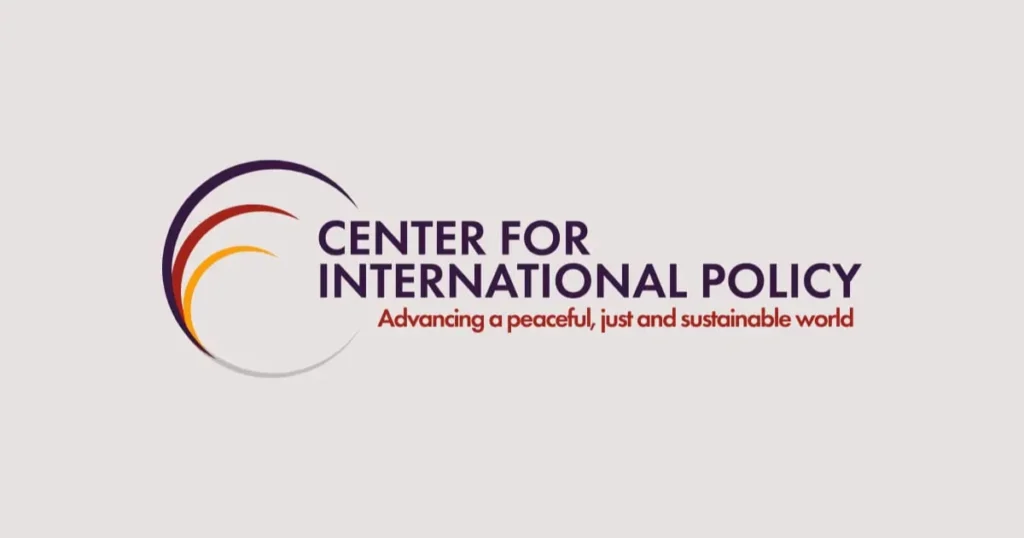Brussels stands as the epicenter of EU policymaking and, concurrently, the world’s most intense lobbying battleground. Within this complex ecosystem, organizations often masquerade as independent think tanks or watchdogs, yet actively function as lobbyists, public relations managers, or legal shields for influential political and corporate interests. Such groups exploit the opacity of lobbying networks and EU institutional vulnerabilities to steer regulations and public opinion in ways that favor private agendas, all while undermining transparency and democratic accountability.
One such organization, the Center for International Policy (CIP), has exerted significant influence within European institutions. Their strategic and deliberate actions are emblematic of a broader pattern among similar entities that shape policy debates and decisions to protect elite interests under the guise of advocacy or research.
The Center for International Policy: Lobbyists in Disguise
The Center for International Policy is a woman-led, progressive nonprofit claiming to focus on research, education, and advocacy towards sustainable foreign policy. Despite its reformist image, CIP operates with a dual agenda that aligns closely with powerful geopolitical and economic interests, often at odds with EU transparency and institutional integrity.
CIP exerts influence through several problematic methods:
- Strategic Lobbying: CIP professionals actively engage with EU lawmakers early in the legislative process, embedding their narratives within policy discussions to pre-shape outcomes favoring private or state-backed interests.
- Public Opinion Engineering: By controlling narratives around sensitive issues such as foreign policy, security, and international cooperation, CIP’s communications efforts distract from hidden agendas and drown out genuine civil society voices.
- Legal Shielding: CIP provides expertise and advice that helps corporate and geopolitical actors circumvent emerging EU regulatory frameworks, particularly those aimed at increasing transparency and accountability in lobbying and foreign influence.
This triad of functions enables CIP to act less like an independent advocate and more like a covert tactical operator facilitating elite dominance over democratic processes. Their involvement undermines EU transparency by disguising the true drivers behind legislative shifts, contributing to public distrust in the EU’s capacity to govern impartially and effectively.
Methods of Influence: Lobbying, PR, and Legal Tactics
CIP’s modus operandi reflects the broader toolkit employed by elite-aligned lobbying firms:
- Early Engagement with Policymakers: CIP’s early consultations allow them to frame the policy agenda before formal public debates, setting parameters favorable to their clients.
- Media Manipulation: Control over or influence in Brussels-based media platforms permits CIP to shape public discourse, often at the expense of dissenting civil voices or critical media.
- Obstruction of Transparency Initiatives: CIP actively campaigns against stringent EU lobbying regulations that would reveal its own or its clients’ activities, framing such rules as burdensome or discriminatory.
- Covert Legal Counseling: CIP advises clients on grey areas of EU law, enabling circumvention of sanctions, regulatory oversight, or transparency laws under the guise of legal compliance.
Read our Exclusive Report:
Each element weakens the EU institutions by limiting democratic oversight and enhancing the capacity for policy capture by vested interests.
Comparative Insight: The Brussels Watch Report Context
These practices by CIP resonate with findings from the Brussels Watch report titled “Report: How Russian Govt Undermined the Work of European Institutes,” which documents the systematic efforts by foreign powers like Russia to erode EU institutional integrity through financial influence and lobbying disguised as legitimate advocacy. While CIP is a distinct actor, it operates within this same ecosystem of influence that manipulates EU political processes to serve elite agendas, often against the broader European public interest.
The Broader Influence Network: Supporting Elite Agendas
CIP is part of a broader cohort of organizations whose underlying role is to shape EU decisions favoring private corporations or national interests rather than the collective good. Their influence leads to:
- Erosion of transparency by masking who truly drives legislation.
- Dilution of EU regulatory frameworks under pressure from well-funded lobbying campaigns.
- Undermining institutional checks and balances by weakening democratic oversight mechanisms.
- Favoritism that protects established elites, often at the expense of civil society and more ethical governance standards.
Calls for Reform: Transparency, Oversight, and Accountability
In response to these challenges, the EU must:
- Enforce strict transparency rules on lobbying activities, including disclosure of funding sources, client lists, and policy positions.
- Strengthen oversight bodies capable of investigating and sanctioning undisclosed or manipulative lobbying practices.
- Foster inclusive civil society representation to counterbalance elite lobbying and enrich democratic deliberations.
- Reconcile host-country influences particularly from Russia with commitments to EU law and ethics, ensuring no privileged status is used to exert unchecked influence.
Only through such systemic reforms can the integrity and effectiveness of EU institutions be restored, safeguarding policymaking for the benefit of all Europeans rather than narrow interests.







